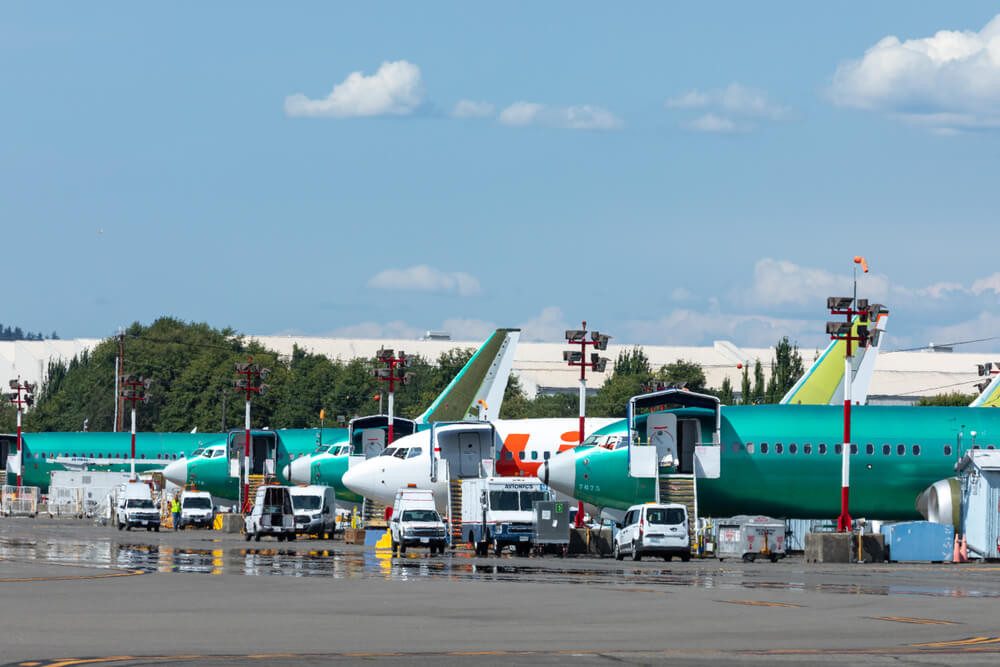On September 11, 2019, the Chairman and Chief Executive Officer of Boeing, Dennis Muilenburg, spoke at the Morgan Stanley 7th Annual Laguna Conference at Laguna Beach, California. Muilenburg touched upon a few key subjects, but the 737 MAX crisis and the forthcoming end to the groundings were the main topics of Boeing’s presentation.
Boeing is trying to steer through adversity without conceding too much damage to its brand and financial results. “The situation with the 737 MAX continues to be our focus,” Muilenburg noted as he started his speech, adding that “we continue to send our deepest sympathies to the families and loved ones of those who were affected by the two accidents”.
The 737 MAX return to service remains the biggest question as Boeing continues to make “solid progress” and is “actively engaged with regulators around the world”. Nevertheless, the solid progress has encountered trouble, as the European Union Aviation Safety Agency’s (EASA) executive director Patrick Ky, while speaking at the European Parliament, has pointed to the fact that Boeing is yet to provide a working solution to some of the issues. In addition, EASA will test the 737 MAX software changes individually, rather than relying on the FAA.
Muilenburg remains hopeful on the previously aimed timeline and “is targeting early fourth quarter [Q4 2019 – ed. note] for return to service of the 737 MAX”. However, he also expressed that the biggest concern for Boeing is “regulator alignment”. While Boeing is submitting “various certification documents” and is answering open questions from agencies worldwide, the discrepancies between agencies is “creating a timeline uncertainty”. A turn of events, where the 737 MAX returns to service on a country-by-country basis, is, according to Muilenburg, “a possibility”. “The FAA is working very hard to build that collaborative network amongst the regulators,” he stated, adding that “this process is about safety” and “not the politics”.
Boeing’s CEO reiterated that the software onboard the aircraft is not the only update to the grounded 737 MAX. Training packages are being revised – an area, which industry experts heavily criticized after reports revealed that the pilots received a one-hour computer lecture with no simulator work at all. Boeing has “developed an enhanced computer-based training module” which will supplement the new training program for pilots – “a 24-day program, which is primarily in the simulator”, Muilenburg added.
Boeing’s finances and cash flow are set to return to pre-MAX crisis levels in 2021, as “headwind” in 2019 is expected to extend onto 2020. Calling commercial aviation in long term “a growth business”, Muilenburg hopes that the industry is still set to grow in terms of deals and cash flow all around – this is why Boeing “is making the right investments for productivity and innovation” to further increase growth prospects.
As time goes on, Boeing is more and more confident on the MAX’s return to service. While it has some soft spots of uncertainty regarding certification, training, manufacturing and deliveries as the 737 MAX is un-grounded, the biggest uncertainty for the company is whether passengers feel that the aircraft is 100% safe. While Muilenburg has repeated that “safety, quality and integrity” have been the core values of the company during the crisis, the way the MAX was certified and released into service back in 2018 has shaken up the confidence of travelers worldwide. There is no doubt that the narrow-body will become one of the most scrutinized aircraft by safety agencies, but subsequently, it could become one of the safest aircraft ever. However, the 737 MAX will always remain a polarizing topic, especially regarding safety.

